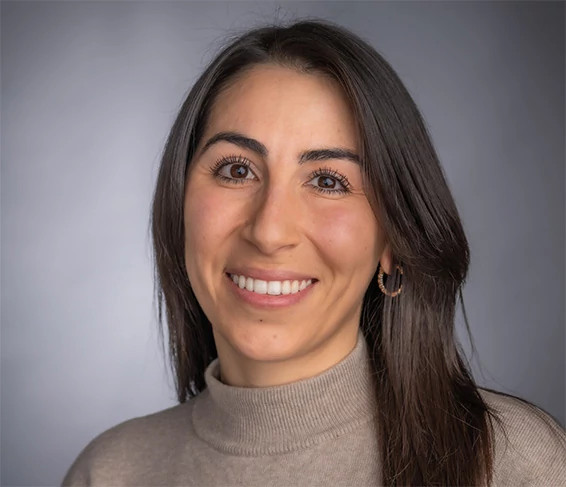Why did you decide to work in oncology?
When I was 12, my father was diagnosed with cancer. I remember the fear, sadness, anger, and confusion. Meeting his doctors and care team gave my family and me hope and comfort. The treatment he received at the time was just recently approved and helped to save his life. The team treating him was also involved in the research that brought this therapy to standard of care. Remembering that feeling of comfort and hope is something that I have always wanted to bring to others in their time of need. I wanted to not only provide that support, but also treat their disease and be involved moving the needle in cancer research.
Tell us about the condition(s) you specialize in. Why is this an area of interest to you? What led you to focus here?
I focus on precursor conditions to hematologic malignancies such as clonal hematopoiesis of indeterminate potential (CHIP), clonal cytopenia of undetermined significance (CCUS), and monoclonal B-cell lymphocytosis (MBL). Prevention is the backbone of medicine, and we have been able to identify precursor conditions to hematologic malignancies. Now while there is still a lot unknown, it is a very exciting time to be involved in treating patients with, and participating in research of, these precursor states – with the hope that we may be able to prevent those who are found to be at high risk from progressing to a blood cancer.
Additional diseases I treat are the myeloid malignancies, such as systemic mastocytosis, myelodysplastic syndromes, leukemias, and other bone marrow cancers.
What are the main challenges in this area? How do you address these challenges with patients and families?
One challenge faced in the precursor conditions is that currently there is no treatment, outside of a clinical trial, to help prevent these conditions from progressing. While these conditions may never progress or cause any problems, there is significant anxiety that patients face surrounding the potential of progression. We at Dana-Farber have a focus in clinical and basic science research for these conditions, to help understand these precursor states better so we may be able to educate our patients. The important thing I tell my patients with precursor conditions is that they do not have a cancer and that they will continue to have close follow-up, so that if anything changes we are able to be on top of it quickly. Once patients establish with me in clinic for a precursor condition, they will continue to be my patient even if they progress.
Describe your research work in precursor myeloid and lymphoid conditions. Why is this an area of interest to you?
In my clinical research, I strive to better understand the mechanisms that impact progression of precursor conditions to blood cancers. The collaboration at Dana-Farber between clinical and basic science research is an important partnership to best discover these mechanisms. I believe that with the knowledge and understanding of these mechanisms, the road to prevention of the development of blood cancers can begin to be paved.
What are you most excited about in your work in the area of precursor conditions? What holds promise for patients?
Research in precursor conditions is a growing interest. I am excited about the collaborations with those in the laboratory, as well as with those in other institutions. The momentum surrounding understanding these conditions is extraordinary, and I look forward to identifying novel interventions to prevent the development of myeloid malignancies.
What do you like to do when you’re not doing research/caring for patients? What do you do for fun?
When I am not working, I love to spend time with my family, friends, and dog. I enjoy traveling, being outdoors, and exploring New England coastal towns.
